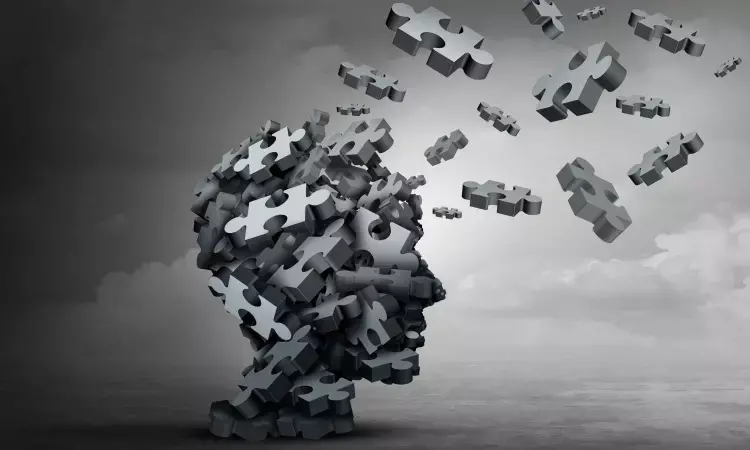- Home
- Medical news & Guidelines
- Anesthesiology
- Cardiology and CTVS
- Critical Care
- Dentistry
- Dermatology
- Diabetes and Endocrinology
- ENT
- Gastroenterology
- Medicine
- Nephrology
- Neurology
- Obstretics-Gynaecology
- Oncology
- Ophthalmology
- Orthopaedics
- Pediatrics-Neonatology
- Psychiatry
- Pulmonology
- Radiology
- Surgery
- Urology
- Laboratory Medicine
- Diet
- Nursing
- Paramedical
- Physiotherapy
- Health news
- Fact Check
- Bone Health Fact Check
- Brain Health Fact Check
- Cancer Related Fact Check
- Child Care Fact Check
- Dental and oral health fact check
- Diabetes and metabolic health fact check
- Diet and Nutrition Fact Check
- Eye and ENT Care Fact Check
- Fitness fact check
- Gut health fact check
- Heart health fact check
- Kidney health fact check
- Medical education fact check
- Men's health fact check
- Respiratory fact check
- Skin and hair care fact check
- Vaccine and Immunization fact check
- Women's health fact check
- AYUSH
- State News
- Andaman and Nicobar Islands
- Andhra Pradesh
- Arunachal Pradesh
- Assam
- Bihar
- Chandigarh
- Chattisgarh
- Dadra and Nagar Haveli
- Daman and Diu
- Delhi
- Goa
- Gujarat
- Haryana
- Himachal Pradesh
- Jammu & Kashmir
- Jharkhand
- Karnataka
- Kerala
- Ladakh
- Lakshadweep
- Madhya Pradesh
- Maharashtra
- Manipur
- Meghalaya
- Mizoram
- Nagaland
- Odisha
- Puducherry
- Punjab
- Rajasthan
- Sikkim
- Tamil Nadu
- Telangana
- Tripura
- Uttar Pradesh
- Uttrakhand
- West Bengal
- Medical Education
- Industry
CBT or second-generation antidepressants recommended for adults with MDD: ACP updated guideline

The American College of Physicians (ACP) has issued an update of its guideline with clinical recommendations for nonpharmacologic and pharmacologic treatments of adults in the acute phase of major depressive disorder (MDD). In the updated clinical guideline, ACP recommends the use of either cognitive behavioral therapy (CBT) or second-generation antidepressants (SGAs) as initial treatment in adults with moderate to severe MDD, and suggests the combination of both, as an alternate initial treatment option. The guideline and supporting evidence reviews are published in Annals of Internal Medicine.
ACP also suggests initiating CBT in adults with mild major depression. ACP stresses the importance of informed decision making when selecting treatment and taking patient preferences into account. In summary, ACP recommends:
• Monotherapy with either CBT or an SGA as initial treatment in patients in the acute phase of moderate to severe MDD (strong recommendation, moderate-certainty evidence).
• Combination therapy with CBT and an SGA as initial treatment in patients in the acute phase of moderate to severe MDD (conditional recommendation; low certainty-evidence).
• Monotherapy with CBT as initial treatment in patients in the acute phase of mild MDD (conditional recommendation; low-certainty evidence).
• One of the following options for patients in the acute phase of moderate to severe MDD who did not respond to initial treatment with an adequate dose of an SGA:
º switching to or augmenting with CBT (conditional recommendation; low-certainty evidence)
º switching to a different SGA or augmenting with a second pharmacological treatment (see Clinical Considerations) (conditional recommendation; low-certainty evidence).
The informed decision on the options should be personalized and based on discussion of potential treatment benefits, harms, adverse effect profiles, cost, feasibility, patients’ specific symptoms (such as insomnia, hypersomnia, or fluctuation in appetite), co-morbidities, concomitant medication use, and patient preferences.
The guideline is based on an accompanying comparative effectiveness living systematic review and network meta-analysis, and on two additional rapid reviews on values and preferences and cost-effectiveness analyses completed by the ACP Center for Evidence Reviews at Cochrane Austria/University for Continuing Education Krems (Danube University Krems). ACP’s Clinical Guidelines Committee is planning to maintain this topic as a living guideline with literature surveillance and periodic updating of the systematic review and the clinical recommendations.
An accompanying editorial from the University of Toronto, calls ACP’s guideline a step in the right direction with its focus on the patient's role in shared decision making around depression. However, the editorialists point to important gaps in the recommendations with regard to non-pharmaceutical approaches to treatment. The editorialists also suggest that physicians may need more information about helping patients safely discontinue medications without suffering from potentially severe withdrawal symptoms.
Reference:
Amir Qaseem, Douglas K. Owens, Itziar Etxeandia-Ikobaltzeta, Janice Tufte, J. Thomas Cross Jr., and Timothy J. Wilt https://doi.org/10.7326/M22-2056
Dr Kamal Kant Kohli-MBBS, DTCD- a chest specialist with more than 30 years of practice and a flair for writing clinical articles, Dr Kamal Kant Kohli joined Medical Dialogues as a Chief Editor of Medical News. Besides writing articles, as an editor, he proofreads and verifies all the medical content published on Medical Dialogues including those coming from journals, studies,medical conferences,guidelines etc. Email: drkohli@medicaldialogues.in. Contact no. 011-43720751


